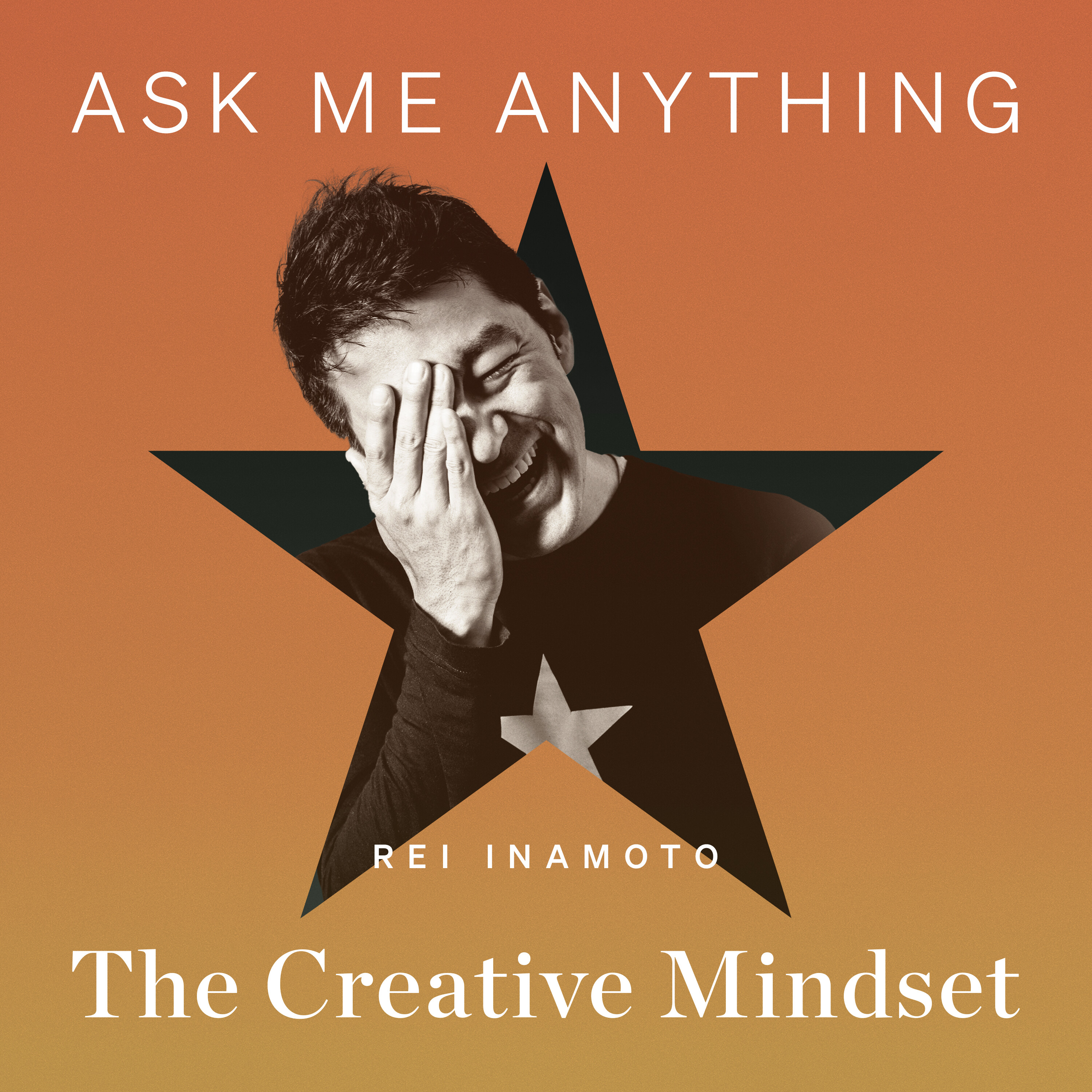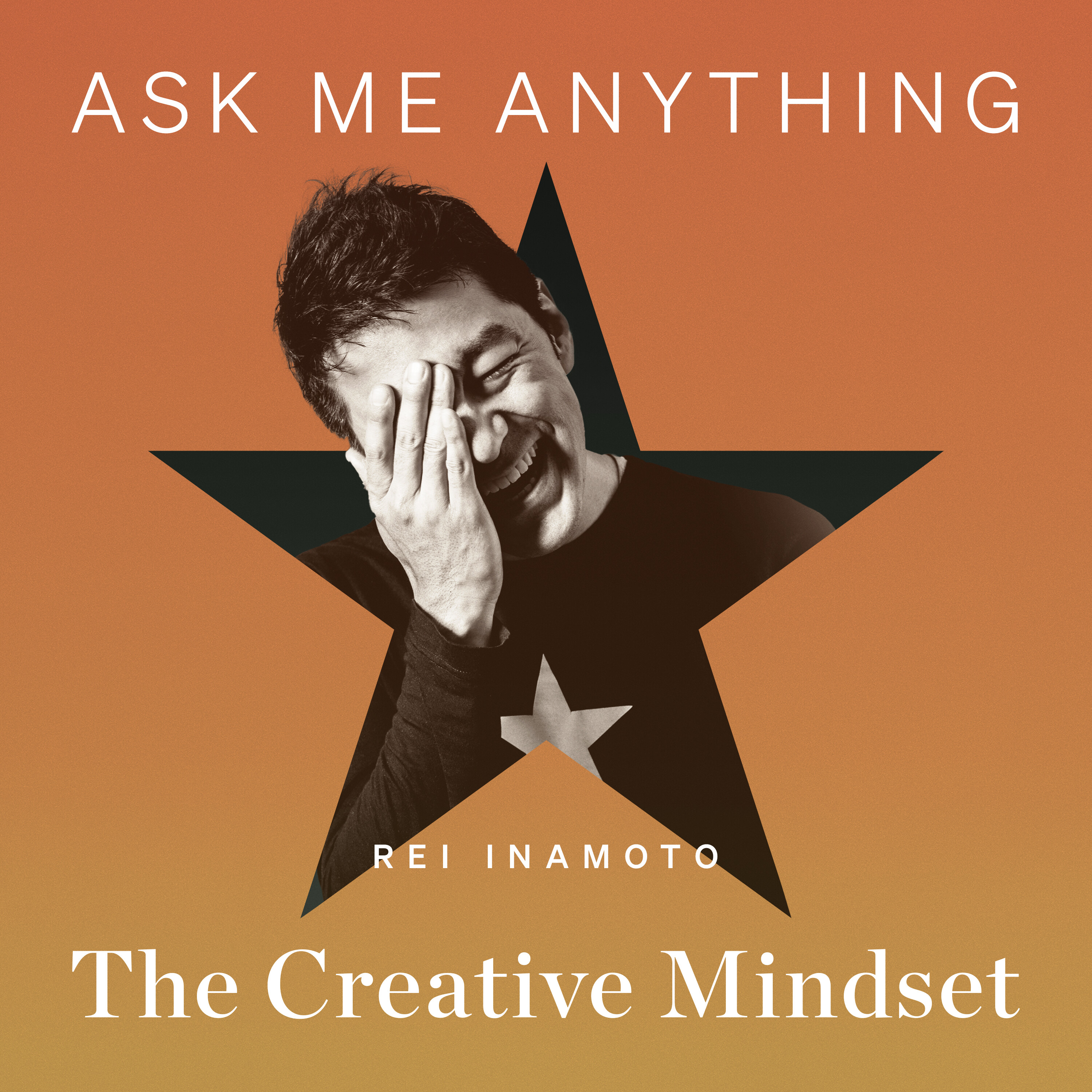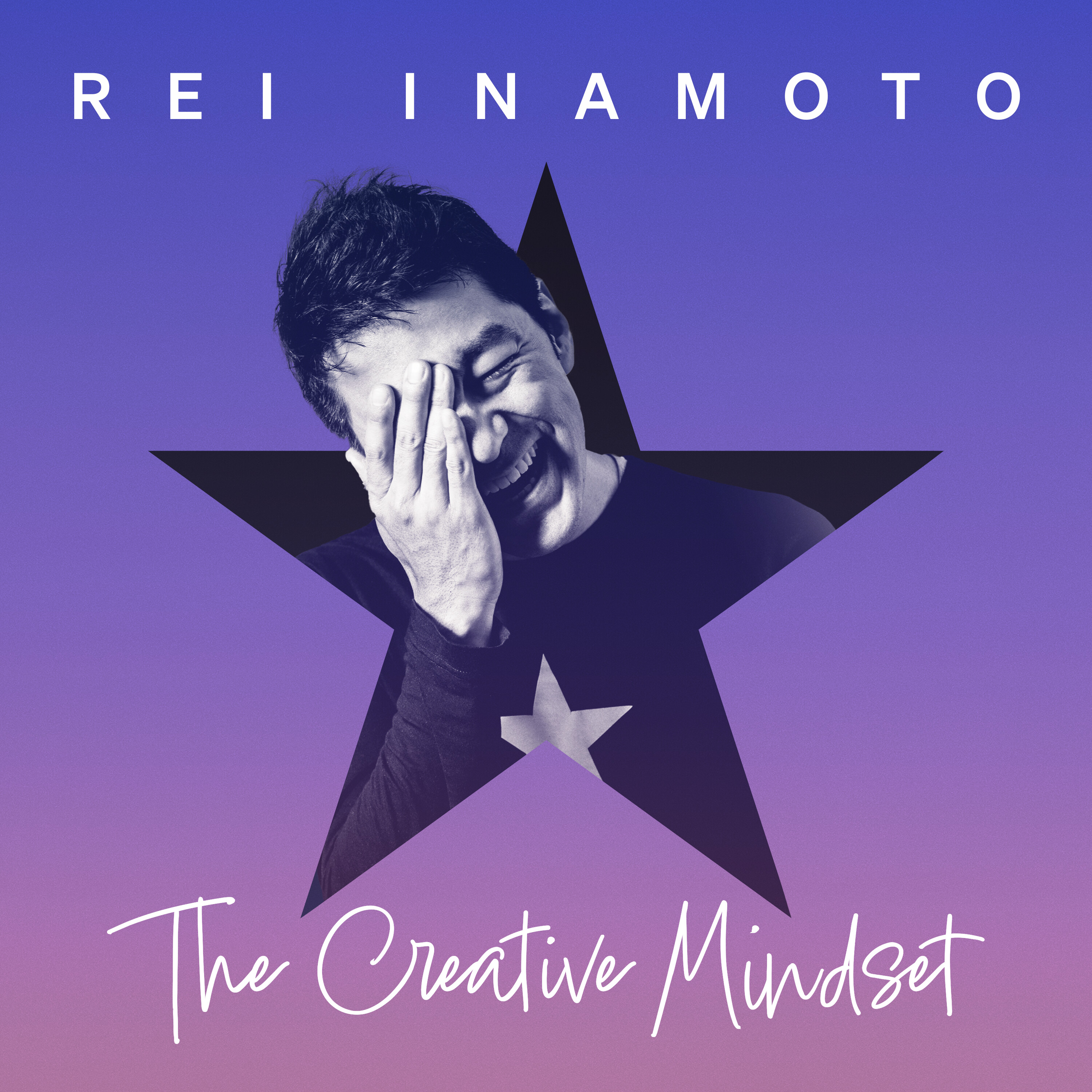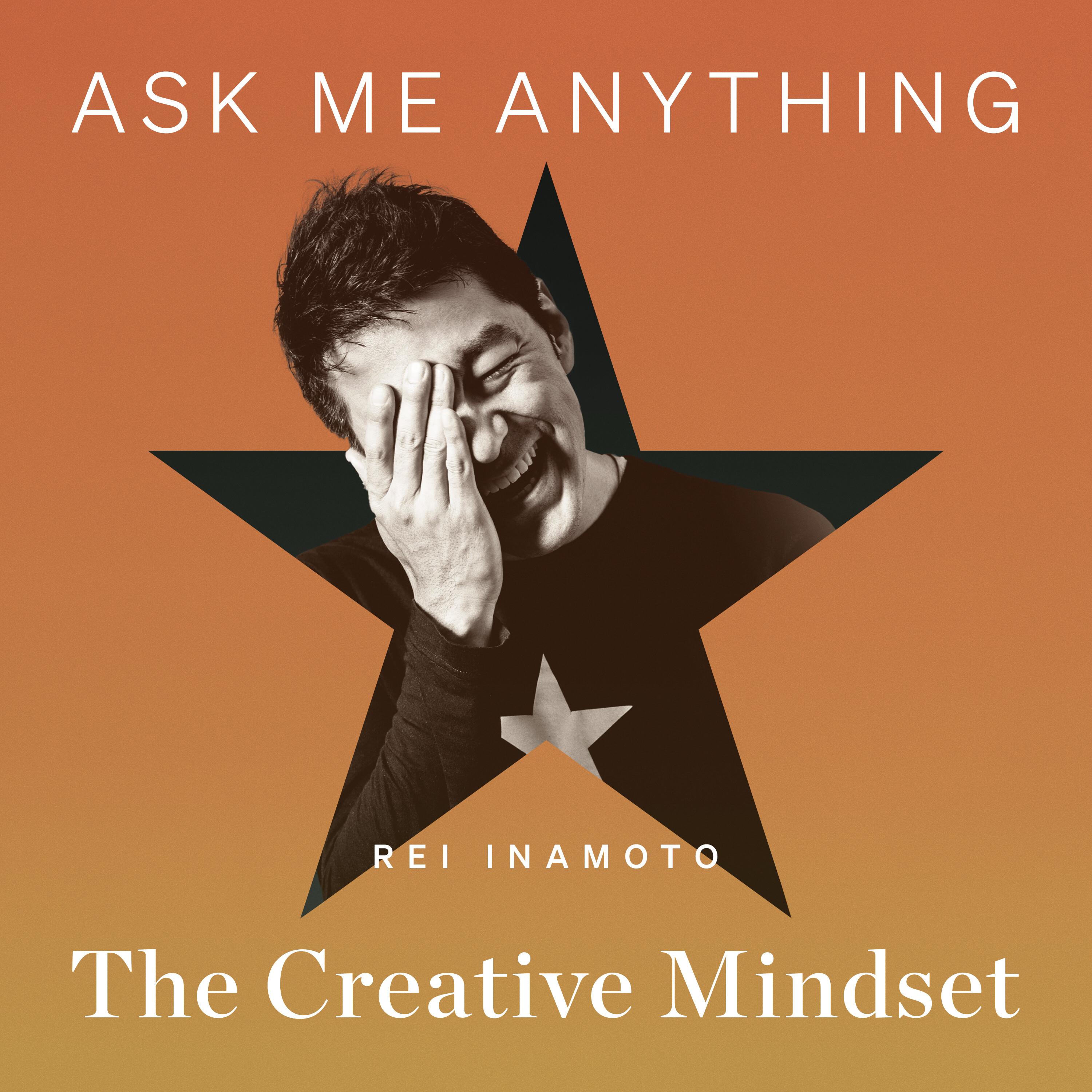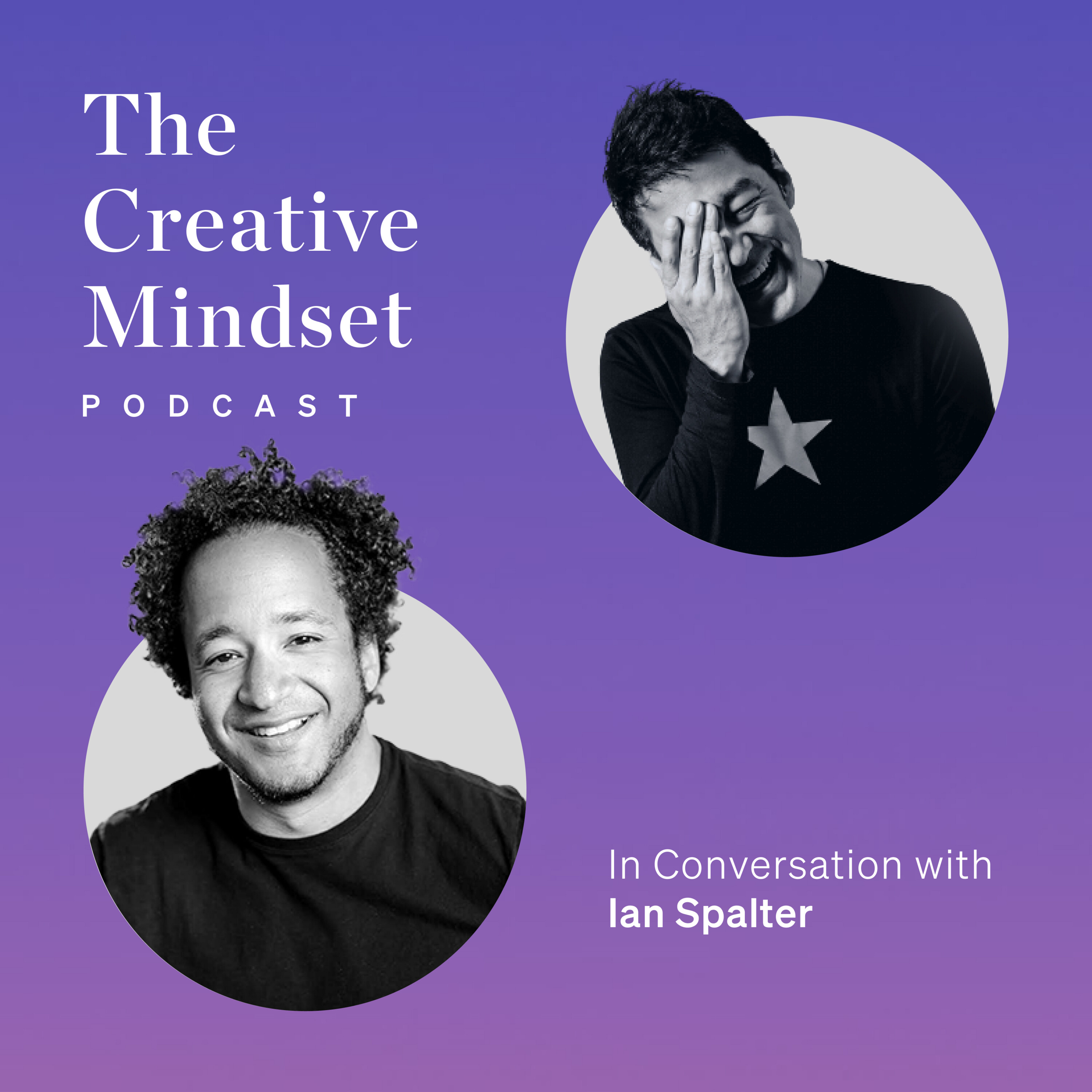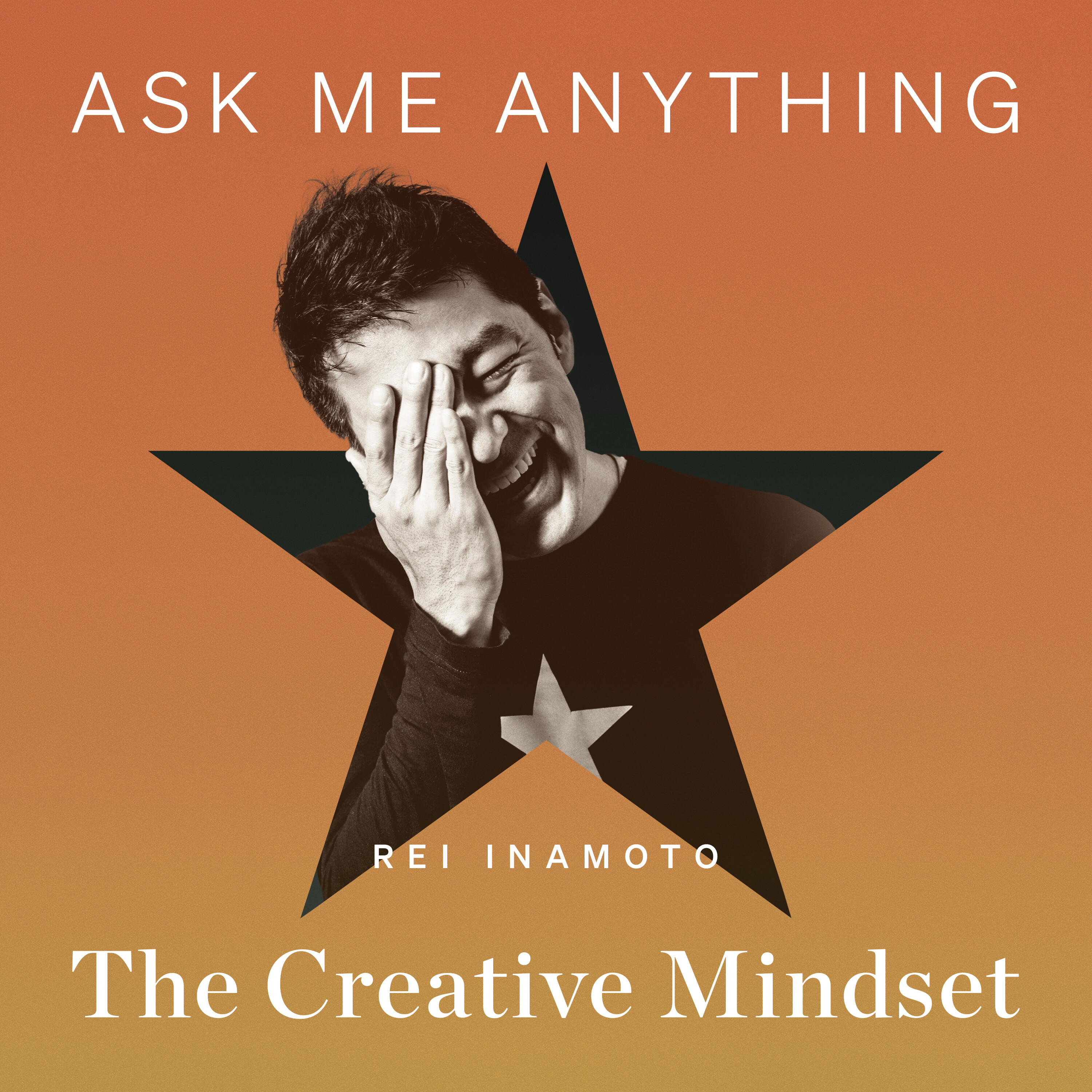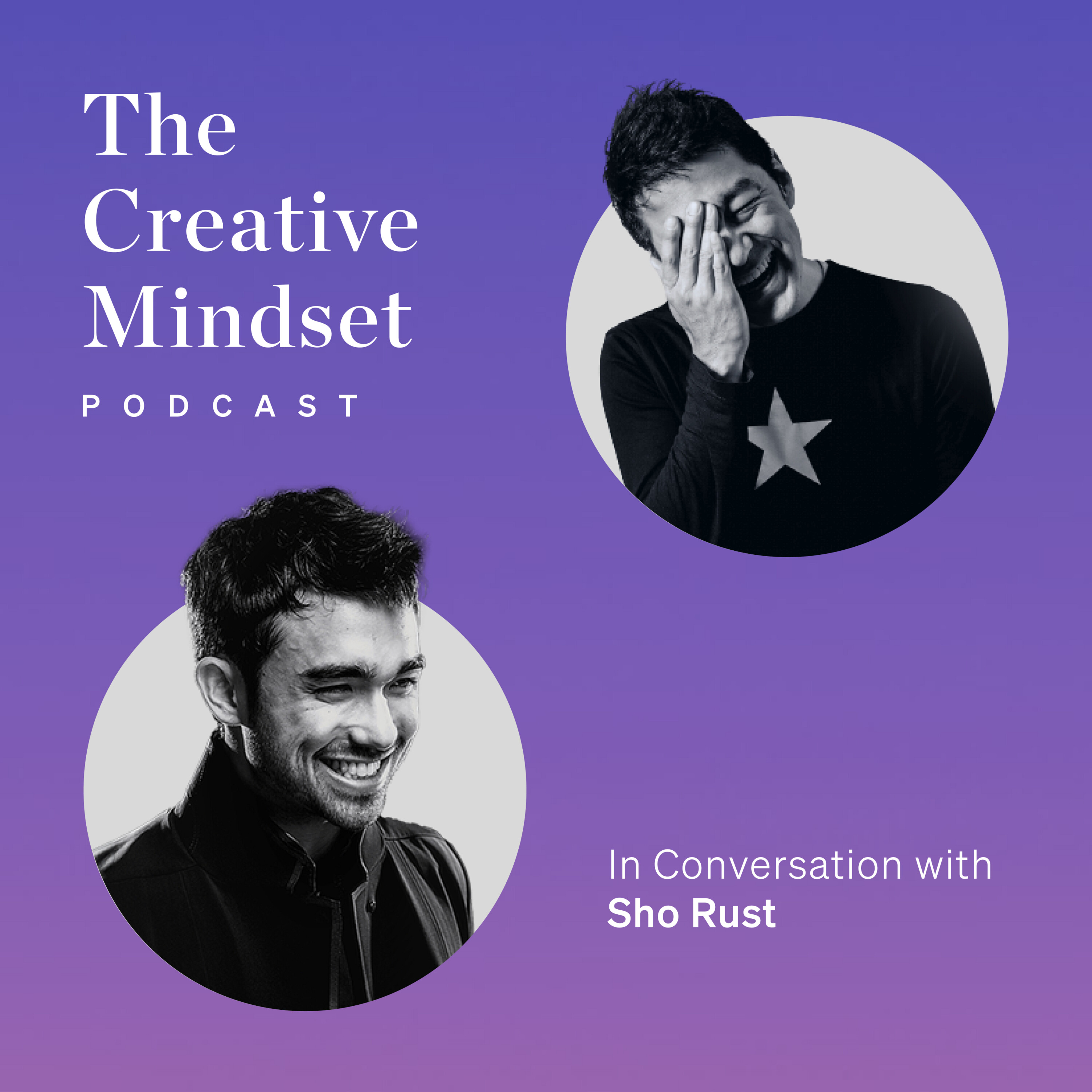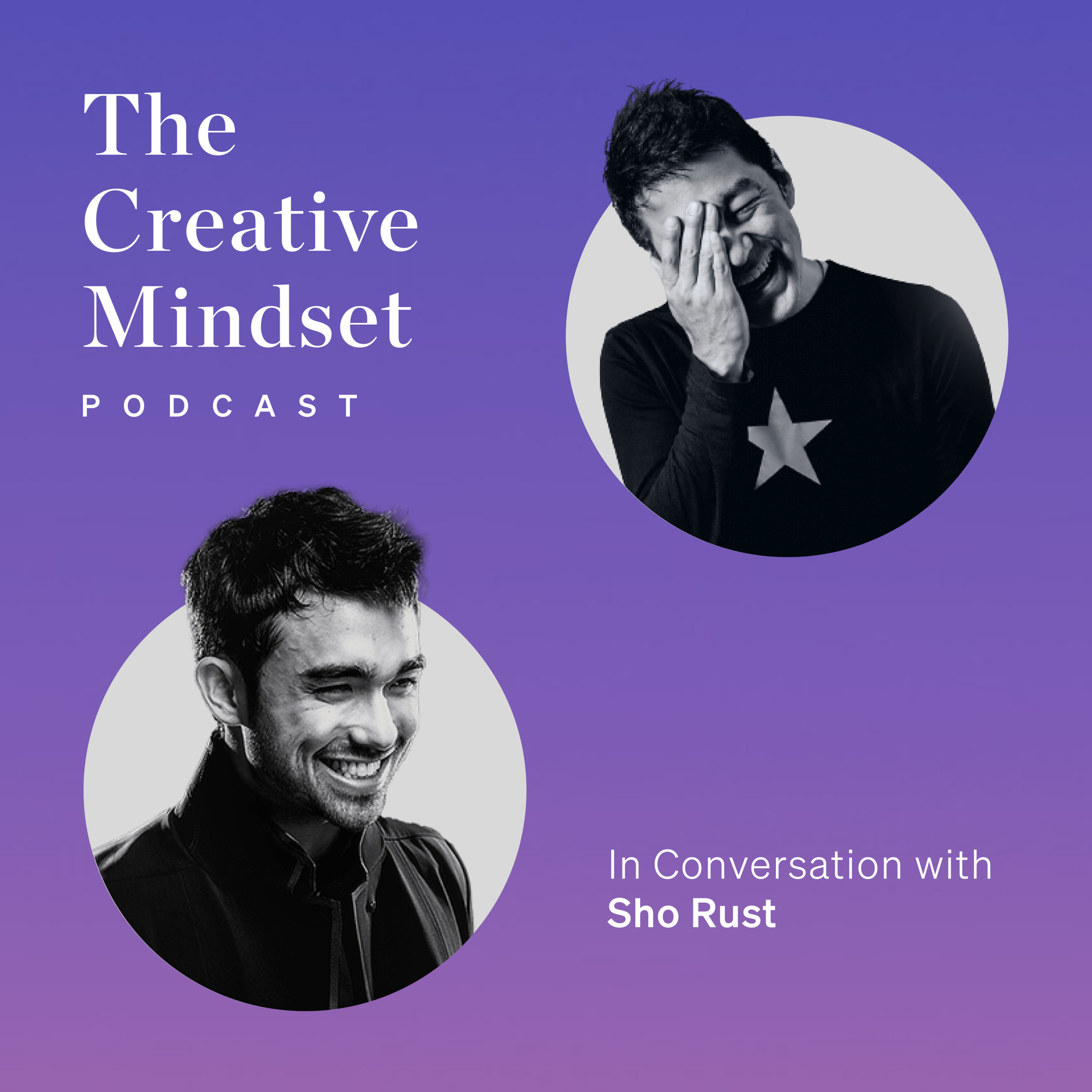This is Rainomoto's podcast, The Creative Mindset.
Hi everyone, welcome to The Creative Mindset, a podcast about what the future holds at the
intersection of creativity and technology. I am Rainomoto, the founding partner of I&CO,
a global innovation firm based in Nihonkan, Tokyo. Today's segment is AMA, Ask Me Anything,
where we invite the listeners who sent in questions and turn that into an open discussion
with them on air. Today's question comes from Roy Hosada, a Canadian-born design entrepreneur
who in 2015 packed up everything and moved across the pond to Japan. Since then, he started his own
creative firm, Rival Schools, in Tokyo. I write a weekly newsletter on Substack called The
Intersection, and Roy responded to one of them a couple months ago asking for my perspective on
hiring. His LinkedIn profile says that he is the socially awkward founder, so I wasn't sure if he
would be willing to be on our show and be vulnerable so openly. Turned out yes, and I didn't find him
to be awkward at all. Roy's question is, how do you approach hiring as a small studio that must
compete with big agencies and tech companies? So, let's get started. Welcome to The Creative
Mindset. Roy, good to meet you.
Nice to meet you. Just a little bit about me. Born and grew up in Vancouver, Canada.
I went to college, studied design and illustration. I actually worked for a small Japanese company in
Vancouver for a few years during the dot-com era. So, when that started, that's when my career also
started. After that, I moved to a smaller agency. It was a 30-person agency. After that, I started a
company with two other people in Vancouver. Did that for a few years, and then I moved to Japan
and started another company in Japan, and I've been doing that for about eight years as well.
The question I had for you was hiring. And as a small company, hiring is obviously very competitive.
In Japan, anywhere else as well, and especially in the creative industry, I think
good talent is especially challenging to gain into your company. And you know, Japanese
culture tends to be in the lure for bigger agencies because of stability, because of
the brands that they get to work with. And the salaries are the perks of tech companies as well.
Until recently, tech company has been a large competitor when it comes to hiring creative people.
And at my company, I have about 10 people on my team. We're like a small company, but
I do try my best to hire the best people I can with such a small team. And I think
maybe you're also in a similar boat. And I guess I just wanted to hear a little bit from you about
how you approach hiring and, you know, stay competitive and all those kinds of things.
It's a simple question, but it's a very deep question at the same time. And I think there
are so many ways to look at that question and so many different ways to answer. People start
following an individual because it's that individual. And same thing with me, my company,
and probably same thing with you, your company. People come join you because it's you
who is leading the company, right? So the first thing that I would share with you is
to start thinking about if you have codified the way you think and the way you work as a company
in a way that can become something that new people can look to and say,
oh, I want to join this company because not only Roy is working at this company and I'm
curious about what he does and what he is, but also I feel the teaching or the method or
the thinking that they have as a company that resonates with me. And in our case,
we had written something called The Iron Coal Maxims. And this was back in, it was literally
within the first three months of starting the company. It's a set of principles that we had
written and they became a useful device, especially when making decisions literally
on a day-to-day basis. If we are looking at an idea, if we are trying to decide what to do,
if we're trying to decide whether to pursue this client or that client, whether should we do this
or should we not do this, we've had these what we call maxims that have stayed with us pretty much
from day one of our company, which is seven years ago. And that's been a very useful decision
making framework or filters that people gravitate towards. And that has become the set of maxims that
we've written seven years ago is by far the most useful recruiting or hiring tool that we've ever
had. And it was, again, I'm making it sound easy, but it was something that we realized in hindsight
and we didn't realize how valuable it was when we wrote it, but it is something codifying
your belief system, codifying and putting down into words how you should behave as a company
and as a group of individuals can be a very, very powerful tool in hiring people.
Right. That helps you with qualifying the right type of person that I think is suitable for
the culture and the work environment for your company, right?
Yeah. So, I mentioned about the maxims, I encode maxims that we wrote literally within the first
few months of us starting the company. And we started off by writing and it was maybe about
five of us at that point. And we started just literally on post-it notes and pieces of paper,
what are the things that are important to us? What kind of work do we want to do?
How do we want to behave? And what are the important aspects of a company that we are
about to build? And started off with individual words like creativity, trust, innovation,
inspiration, those types of professionalism, integrity, those types of adjectives and nouns
that are relatively common in corporate language, in many corporate language, right?
And this sounds a little self-serving, but I then pulled out at the time, and I'm not very active
on this now, but at the time on my Twitter account, and I used to make these succinct,
simple statements that I thought were insightful and interesting and inspirational.
I pulled out some of those tweets that I had done in the past and say, oh, when we say simplicity,
and when I thought about, okay, simplicity is something that's important, but simplicity alone
as a word isn't an actionable statement. And then I remembered I had tweeted,
when in doubt, subtract, and realized, you know what? That statement can help us think about
simplicity in a certain way. And why don't we take that as an example of, hey, this is one way,
one filter that we can have. And then from there, we just started writing different statements
that would help us take an action or make a decision. And yeah, I spent probably not too
long, a few weeks writing these maxims. It was literally within the course of four to six weeks
or so, writing and rewriting and discussing each week, every week with the team member at the time
was, like I said, was about six people, four or five or six people. And then narrowed down to
actually seven that we all felt could be useful in helping us decide and helping us behave
in certain ways. So that's how the maxims were conceived and born. A couple years down the line,
actually, so that was in 2026. And then actually 2020, when COVID hit, and when the Black Lives
Matter movement started to become a major social movement, we added an additional maxim
to the list of maxims that we have. And that's a be just and do right. And that was our reaction
and pledge to social justice. I see. Part of the challenge I feel is, I mean, there's so many
layers of challenges. The kind of agency that we are moving, our goal is to become a very
global agency in Japan. And everyone in our team at the moment is bilingual. So that poses
already an immediate challenge for hiring. Yeah, that's just one layer. The other layer
is the fact that we have a very Western blend, but also Japanese blend of creative approach.
And so it's not bilingual and just language, but also the creative style, like the approach.
And we don't want somebody who thinks too Japanese. And we don't want somebody who
is completely unaware of the Japanese creative scene at all. And then of course, that
culture fit, their personality, their work ethics, all that kind of stuff. So it's just been like
this constant trifecta of challenges for hiring. And then my assumption has always been those
people who have all those components, they're highly sought after. And obviously, the recruiting
industry in Japan is extremely, I think, aggressive. There's a lot of companies. It's huge.
It's huge here. So surprising how big recruiting is in Japan. And so I always feel like I'm
constantly... I feel like a tumbleweed. I have no control. And other companies have the advantage
because they have more budgets and all that kind of stuff. And I'm doing my best to network and
try to look for people. But at the same time, the more I do that, the less I work on my business.
And I'm still also actively working in projects as well. So that's also a challenge. So trying to
juggle all these things at the same time has been... Obviously, it's a priorities organization
issue, I think. And understanding where my responsibility as the leader of the company lies.
But at the same time, I kind of wanted to figure out where... Because as a small company,
starting a company, you have to fill the gaps that are there and evolve as things change.
But at the same time, how... Everyone, I think, struggles with this. But I'm trying to get out of
it. I'm trying... I see these steps ahead of me. And I want to also hear how others have been
taken these... How they've taken these challenges one by one.
Yeah. I mean, it does come down to hiring. And in my case, when I started my office in Tokyo,
it was the second time. The first time I started an office in Tokyo was at the previous agency that
I was working for. And that was my company. It was a big network company. And I was the
chief creative officer for that company. And we needed to open an office in Tokyo,
because there was a lot of client demand. But I would say I didn't do a good job of hiring
on the ground in Tokyo. And the office in Tokyo really struggled to take off,
just because it was like a rotating door of people, especially at the top.
Yeah. And so, the second time, which was when I started the Aiko Tokyo office, I took the time
to hire the top people. Top meaning not necessarily top talent, but who do I put at the
top of the team? And I think if I'm understanding what you're saying correctly, and if I'm reading
between the lines, that what you might need, and not knowing exactly what kind of people you have,
and what kind of structure you have, what you probably need is somebody who can replace you.
Yeah, I think so.
And it doesn't sound like you have found that person yet.
No, not yet. Definitely not.
Yeah, yeah. So, you get pulled into the day-to-day work, right?
Yeah.
So, you have to work on the business as well as you have to work in the business. And by the way,
I will also admit that I haven't figured out myself at my company. And the benefit and the curse
is that when I was working for somebody else, and I was the top of the food chain,
and yeah, there was a lot of responsibility on me, but the company was not necessarily
100% dependent on me.
Now that I've started my own company,
for better or worse, the company is dependent on me. So, there's a lot of pressure.
So, I will be the first one to admit that I have not figured out how to... I hate the word
delegate because it sounds as if I'm trying to avoid responsibilities. So, I don't like the
word delegate. And I also don't like the word empower because I feel like it's such a
cliche word these days. But it's an ongoing challenge to give autonomy to the individuals,
particularly people at the top, directly below you, to give them the autonomy and the space
and the freedom to feel like it's their thing, but also have enough involvement so that you,
as the top of the food chain, can have enough influence on the direction of the company.
So, it sounds like what you may want to focus on in the next 6, 12, 18 months or so is to
either replicate what you do in somebody else or get somebody to be better than you and better at
what you do and to be able to do what you do better than you can do.
It also needs to be known that it exists in the first place, right?
Yeah, of course. So, in our case, I spent almost two decades in the industry. And like you said
at the beginning, I worked for a couple of big and notable agencies. So, I was able to
build my career and build a name to some extent to get my name out there. That's one thing.
But what's interesting, having said that, what's interesting though is I would say
half the people that we have now, at least half, people didn't know about us
when they joined and they didn't know about me. Some people knew about me and some people knew
about Ayanko, but we've had a fair amount of people join us even though they didn't know us.
Yeah. So, for instance, in Japan where you are now, we have an office and we have about 22 people
plus contractors, so probably about between 25 and 30 people. And the first two people that I hired,
one person was somebody that I had worked with and I knew who he was and I had a lot of trust in
him. So, I tapped on his shoulder and said, hey, would you like to join us? And then the other
person who joined to become one of the two founding members of Ayanko Tokyo, he just happened to
Google design technology. I don't know exactly what the combination of keywords that he typed,
but apparently our company's name came up in a Google search. And mind you, we hadn't done a lot
of SEO or search engine optimization, so it was totally random. So, he just clicked on the link,
went to our website and found it interesting and he emailed us randomly. So, it wasn't because of
some press that we got, it wasn't because of the interview that I had done, it wasn't because of
any public PR activities that we did that the initial set of people to be interested in us. So,
it was just a combination of saying the right things and just knowing what the specific angle
that as a company that we wanted to have and that happened to find its audience.
So, like I said, the 50% of people that we've hired, they didn't know about us and they just
happened to be found by us. And also, by the way, we actually make a pretty proactive effort to reach
out to people when we want to meet people, candidates. You mean like when you see somebody
on Instagram or something and you think they're very talented and you reach out to them?
Yeah, and we actually do have a recruiter that works with us. So, they're not a full-time employee,
but it's one person plus a couple of people that he uses. But we use a recruiting firm that has
worked with us from pretty much day one. So, they are our recruiting, almost like an in-house
recruiting team. So, they know us from the inside. It's not like we're using an external
recruiting agent because I have mixed feelings about recruiting agencies just because
I mean, I have a lot of respect for recruiting agencies, but at the same time, it's numbers.
So, the more people they can refer and get hired, the more money they make. So,
it becomes a volume game. Whereas when you get to know the recruiters and when they get to know you,
they represent the firm as well as anybody else could. So, we have both in the U.S. and in Japan
a couple of recruiting experts that we've worked with. So, that way, and then they are actually
the ones reaching out to people. And then sometimes, it's within three months that we
hire somebody. Sometimes, it would take more than a year. And hey, it might not be the right time,
but let's keep in touch. And then a year later, a good opportunity comes up and we hire them.
Robert Leonard That's really interesting because
I've talked to another friend of mine who has an agency and they've hired their own in-house
recruiter. And I think they're starting to see better results from that as well.
Yeah, yeah. Interesting.
Yeah, I would say so. Recruiting, it's such a key component of the company. And
it needs to be the person who's doing the recruiting needs to understand the DNA of the
company. And they are also the representation of the company to the outside world. So,
unless they can represent the company well, like I said earlier, it becomes a transactional game
as opposed to recruiting is a cultural decision. To decide who to hire is a cultural decision,
especially when your company is small. Each person becomes such a big component of your
culture. One person can make a big difference. Yeah, yeah. So, we take recruiting very seriously.
And we've worked with the same recruiter or group of recruiters multiple years so that they know what
we are like from the inside. And they represent us, not necessarily the recruiting firm itself.
Interesting.
For me, I know I was the one answering the questions, but it helps to hear these questions
because some of them I've gone through those in the past. Some of them I'm still going through.
And some of them are never-ending topics.
Right. Yeah, I know.
You can never master the art. So, it's helpful to get these questions as well. So,
I appreciate you taking the time to reach out to me in the first place and taking the time to chat.
Yeah. Yeah, I mean, this has been so helpful for me. And like I said, there's a lot of stuff that
I have that I can think through and I feel like are quite actionable from your responses. So,
thank you so much for the very thoughtful answers.
Pleasure is all mine. Pleasure was all mine. Thank you.
So, that was AMA, Ask Me Anything. The question came from Roy Hosada, a design entrepreneur and
the founder of Rival Schools, a creative design firm based in Japan. When he reached out to me
to ask me a question about hiring, and as I found out who he was and what he does, I was first very
impressed by the fact that he's not from Japan. He's somebody who moved to Japan after he graduated
from school and after he had several years of experience in Canada. And as I said at the
beginning of this episode, he packed up everything that he had back in 2015 and moved to this foreign
country. If you are remotely familiar with Japan, it's actually a very difficult market for foreigners
to break into if you don't speak Japanese. In Roy's case, he doesn't really speak Japanese,
and the company that he's built hires bilingual people. In Japan, you don't find bilingual people
that easily. So, not only did he start a company in a foreign land, he's going up against a tide of
not having enough candidates to hire from, especially because he's got this barrier of
having to hire people who can speak English and Japanese. So, I want to congratulate Roy
for having the guts, the courage to leave his home country to go to a foreign country and start a
company and try to build an organization himself in this unfamiliar territory. When Roy and I were
having this discussion about hiring and building a team and building a culture, I shared with him
what we have used as a way to establish the way of being, the way of thinking, principles of who we
are and how we do things. We call these I&Co maxims. I&Co maxims are a set of principles
that we wrote probably within the first three to four months of existence of our company.
At that time, we had about four or five of us. We went off-site. We stayed at this Airbnb house for
a few days, talked about what kind of company we wanted to be, what kind of work we wanted to do,
and how we wanted to behave. And what became our maxims were a set of values and set of thoughts
that were important to us. So, just to share a few maxims, when in doubt, subtract is one of the maxims
that we have. And this maxim has proven to be useful, especially when we are thinking about
new ideas that we are trying to come up with and propose to the clients that we work with.
Be tough, not rough. That's another maxim that we use, not necessarily for the clients, but for
internal purposes and the way we behave to each other within the company. Magic over logic
is yet another maxim, and this goes back to the first maxim that I shared when in doubt, subtract.
Magic over logic is a belief that we have and that I have about the type of ideas that we think
would resonate and it would stand the test of time. When we established these maxims back in
2016, we had seven of those. Over time, we've kept all of those, all seven of those maxims,
and then in 2020, we added our eighth maxim, which is be just, do right, in response to the Black Lives
Matter movement, Stop Asian Hate movement, and any other social injustice that we saw in the world.
And we also wanted to bake that in into the way we behave and the way we work at IONCO.
Not every company has to have maxims, but I do believe that a set of beliefs is an important
factor or important asset of any organization. I'd like to thank Roy for coming on to the show
today and be vulnerable. Just the fact that you've made it in a foreign land for over seven years
speaks volumes for your grid, and that is the most important factor for success, and you already
have that. For others, I hope today's conversation can be useful, helpful, and inspirational in some
way. If you're listening to this on Spotify, there's a Q&A field, so please do send us your
questions and comments. If you're listening to this on Apple Podcasts, and if you like our podcast,
please leave us a five-star rating. We'll be so grateful. I'm Reina Moto, and this is The
Creative Mindset. See you next time.
